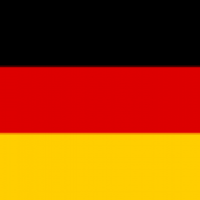Summary:
A German technical university has developed a new method and apparatus for continuous Z-folding of lithium-ion batteries. The Z-folding process enhances production throughput by 150% vis-à-vis conventional methods, thus significantly reducing battery production cost. The institute is interested in a cooperation in the framework of a license or a research cooperation agreement.
Description:
The electrification of drives is an enormous challenge as well as an opportunity for the automobile industry and its suppliers to provide competitive and affordable technologies to participate within this industrial transformation. However, the high costs of battery systems, the limitations of the range of electric vehicles and the presently insufficient charging networks are three of the main challenges toward its realization. The cost-efficient production of battery systems requires a high degree of automation and an increased production throughput. Current handling methods in assembling the inner electrode-separator-composite of battery cells are characterized by pick-and-place operations, the productivity of which is limited by necessary sequential setting and resting stages.
The aim of this innovation developed by a German technical university is to provide a method and apparatus for continuous z-folding of an electrode-separator-composite. The electrodes get joined accurately, thus enabling a fast and continuous folding with the highest possible throughput. The approach pursued is the shifting from discrete pick-and-place operations toward a continuous and fast process flow, which enables a faster and more cost-efficient production of electrode-separator-composites and, eventually, of lithium-ion battery cells. The concept represents a major step towards a competitive manufacturing process in the production of batteries.
The innovation is relevant for application in energy storage and e-mobility.
The university is interested in a cooperation in the framework of a license agreement or a research cooperation agreement. A future licensee would have the authorization to use the technology in return for a fee or a share of royalties. The client is also open to agree on a research cooperation agreement that aims at a joint further development of the technology. These cooperation types have been selected in order to seize best the innovation's practical potential to make battery production more efficient, thus advancing the energy and mobility transition.
Type (e.g. company, R&D institution…), field of industry and Role of Partner Sought:
The university is looking for partners from the automotive industry (including its suppliers) and from relevant research institutes for a license or a research cooperation agreement.
In the framework of a license agreement the partners sought are industry, SMEs or research institutes (incl. universities). The partner will be authorized to use the licensed technology for, e.g., the development and production of new forms of separator material.
In case of a research cooperation agreement the partner sought could also be industry, an SME or an academic partner in order to jointly continue the development of the technology.
Stage of Development:
Prototype available for demonstration
Comments Regarding Stage of Development:
TRL 7 - Demonstration system
IPR Status:
Patents granted
Comments Regarding IPR Status:
Approved: AT, CH, DE, EP, FR
Pending: GB, US, KR, JP, CN
External code:
TODE20200806002








